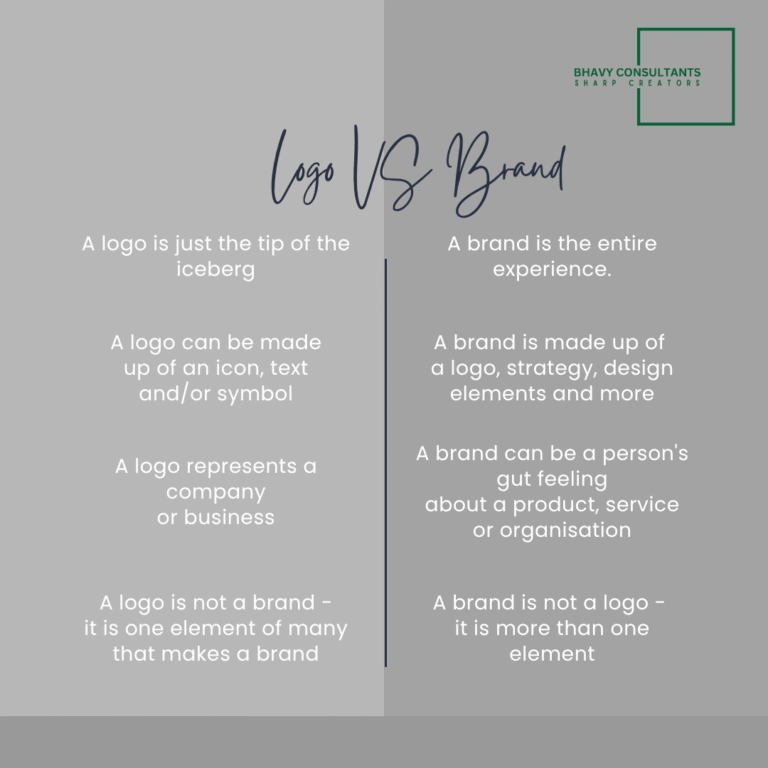How to Build a Strong Brand Identity Through Graphic Design
Introduction In today’s digital-first world, building a strong brand identity is more important than ever. It goes beyond just having a catchy logo; it’s about creating a consistent, memorable image that resonates with your audience across all touchpoints. Graphic design plays a central role in this process. From logos and color schemes to typography and social media templates, design communicates the essence of your brand visually and emotionally. In this blog, we’ll explore how graphic design helps build a powerful brand identity and how businesses can leverage it for lasting impact.

1. What is Brand Identity?
Brand identity is the collection of all brand elements that a company creates to portray the right image to its consumer. It includes:
Logo
Typography
Color palette
Visual elements
Brand voice and tone
Style guidelines
Graphic design helps unify these elements into a coherent visual system. When done right, your brand identity should convey your mission, values, and personality at a glance.
2. The Role of Graphic Design in Branding
Graphic design translates your brand strategy into visuals. It serves the following roles:
Visual Communication: Instantly communicates your brand’s message.
Consistency: Ensures all your brand materials look and feel aligned.
Recognition: Helps your brand stand out and become memorable.
Emotional Connection: Colors, shapes, and typography influence how customers feel about your brand.
From your website and business cards to your social media graphics and packaging, design leaves a lasting first (and lasting) impression.
3. Key Elements of Brand Identity Design
a) Logo Design The logo is the face of your brand. A well-designed logo is:
Simple
Versatile
Relevant to your industry
Memorable
Your logo should be scalable and look good across all formats, from business cards to billboards.
b) Color Palette Colors carry psychological meaning. For instance:
Blue conveys trust (used by banks and tech brands)
Red signifies energy or urgency
Green reflects nature and calmness
Choose 2-3 primary colors and 1-2 secondary colors to use across your branding.
c) Typography Fonts express personality. For example:
Serif fonts = tradition and reliability
Sans-serif fonts = modern and clean
Script fonts = elegance or creativity
Stick to a consistent typeface hierarchy for headings, subheadings, and body text.
d) Imagery and Visual Elements Illustrations, icons, photography, and textures should align with your brand’s tone and message. Use a consistent editing style or theme.
e) Layout and Composition The way you arrange elements on your website, brochures, or social media posts impacts readability and flow. A balanced, clean layout reflects professionalism.
4. The Process of Building Brand Identity Through Design
Step 1: Understand Your Brand
What is your mission?
Who is your target audience?
What are your core values?
What emotions do you want your brand to evoke?
Step 2: Competitor Research Analyze how your competitors present themselves visually. This helps identify opportunities to differentiate.
Step 3: Mood Boards and Inspiration Collect visual references that reflect your desired brand identity—colors, textures, logos, websites, and packaging.
Step 4: Design Development Create logo concepts, color schemes, typography systems, and brand collateral. Use design tools like Adobe Illustrator, Canva, or Figma.
Step 5: Create a Brand Style Guide This is your visual rulebook that includes:
Logo usage rules
Color codes (Hex, RGB, CMYK)
Font guidelines
Layout principles
Dos and don’ts
Step 6: Implementation Roll out your brand identity consistently across:
Website
Social media
Business cards
Email signatures
Ads and marketing campaigns
5. Real-Life Examples of Strong Brand Identity Through Design
Apple Minimalist design, clean fonts, and a sleek color palette reflect innovation and premium quality.
Starbucks Their consistent use of the green logo, coffee-themed imagery, and friendly fonts creates an inviting, globally recognized brand.
Zomato Bold red branding, clever social media graphics, and simple typography help Zomato stand out in the crowded food delivery market.
6. Tips for Small Businesses and Startups
Start simple but professional
Use free or affordable tools like Canva or Looka
Hire a freelance graphic designer or branding agency if possible
Stay consistent across all platforms
Keep evolving based on customer feedback and trends
7. How Bhavy Consultants Can Help At Bhavy Consultants, we specialize in transforming business visions into impactful visual identities. Our expert graphic designers and brand strategists work closely with you to:
-
Design a unique logo
-
Create a cohesive color and font system
-
Develop branded social media templates
-
Deliver a complete brand style guide
Whether you’re launching a new business or rebranding, we ensure your identity is designed to connect, engage, and convert.
Conclusion Your brand identity is your business’s visual handshake with the world. With strategic graphic design, you can communicate your values, attract your ideal audience, and leave a memorable impression. Invest in your design today, and build a brand that stands the test of time.
Ready to design your brand identity? Let Bhavy Consultants bring your vision to life!